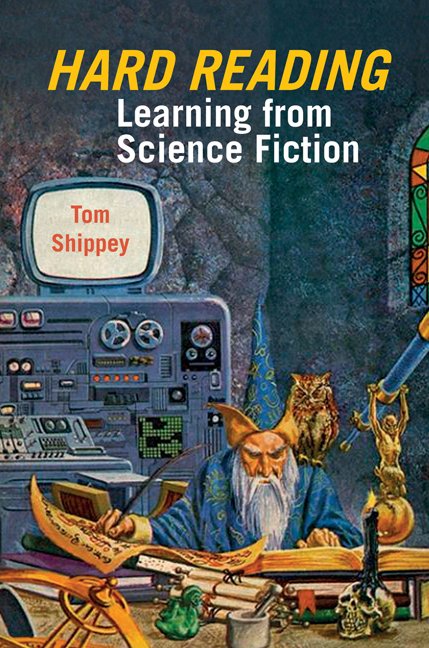1 - Coming Out of the Science Fiction Closet
from What SF Is
Summary
One of the sub-themes in this collection is the way I slowly ‘outed’ myself as a science fiction reader within the academic profession. When I was an undergraduate at Cambridge, one thing I was quite sure about was that the merest whisper of an interest in science fiction was going to destroy any prospects I might have as an English professor: science fiction, it was well known, was suitable only for adolescents, and indicated a lack of the serious moral qualities thought requisite (in Cambridge, in the early 1960s) for literary criticism. My Moral Tutor indeed once noticed a copy of Astounding carelessly left lying around in my room, and not long afterwards told me that he would not support any application of mine for graduate study. This may have been a coincidence – I had other black marks on my record – but it certainly didn't help.
My first tiptoe into sf criticism came in 1969 (see item 5, below). This was only slightly brave. I was then a very junior lecturer at the University of Birmingham, but I had just got what Americans call ‘tenure’. I didn't think it was going to do me any good in any application I made for promotion or a different job, but it came out in a journal with minimal circulation, so probably no one would notice. In 1972, I got a substantial promotion to an Official Fellowship, at St John's College, Oxford, teaching Old and Middle English – not, of course, science fiction! – and felt secure enough to write for Foundation (see items 4 and 9, below), both write-ups of talks given at Novacons in Birmingham. This was probably acceptable in Oxford as an amiable eccentricity, though still a bit suspicious: but then no one from Oxford was going to show up at Novacon, apart from the odd naughty student, and they were on my side. By 1982, I was Professor of English Language and Medieval Literature at Leeds, and bold enough to write a book on Tolkien.
- Type
- Chapter
- Information
- Hard Reading: Learning from Science Fiction , pp. 3 - 23Publisher: Liverpool University PressPrint publication year: 2016



